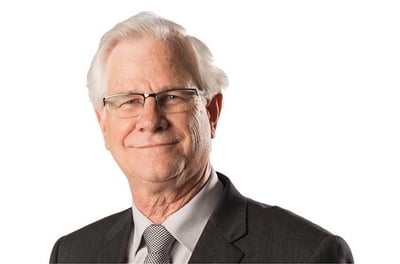Mind of Jacka: It's Time to Start a Movement
Blogs Mike Jacka, CIA, CPA, CPCU, CLU May 02, 2024

I’m sick and tired of hearing what internal auditors can and cannot do. And what I’m really tired of is members of the profession — blindly accepting what we can and cannot do — accepting our lot as second-class citizens in the business world.
Don’t think you’re a second-class citizen? Ask yourself, who do you report to? After thinking about that, ask yourself why do you accept anything but reporting to the board and the CEO? Oh, I’ve heard all the justifications — the answers that make you feel warm and fuzzy inside while denying that, while you may be important, you aren’t really that important.
Don’t think you’re a second-class citizen? Who do people in your organization turn to when they need help with governance, achievement of objectives, or controls? Yeah, they talk to you sometimes, but are you the first stop? Or are you an afterthought, the second string, a double-check that is ignored when it doesn’t agree with the first opinion?
How often does the organization bring in external consultants for work you could do? (And let’s not get into the fact that you might not be able to do it; the discussion of internal audit’s need to take significant steps in the upskill department is better left for another time.)
Don’t think you’re a second-class citizen? If I were to walk the halls of your organization and ask people (clerical to executive) what internal audit is, how would they describe it? Would they just be able to tell me your names, that you do “audits,” and that you did an “audit” of them last year? (And another problem best left for another time, do you even know what you do?)
Don’t think you’re a second-class citizen? Why do universities place all internal audit training (if any) under the accounting department? Why do graduates see the profession as something that might be done if they can’t cut it in the accounting world?
Argue with every one of these questions all you want. You can try to justify and bluster all you want. But, in the quiet of your home office or cubicle, ask yourself the difficult question: What do these questions say about our profession?
Before I go any further, let me note that I’ve heard great stories and solutions throughout my internal audit experiences — stories of successful audit departments that are considered an integral part of their organizations. However, no matter how good the best of us are, we are being dragged into the mud by the worst, the mediocre, and the more-than-mediocre of us.
Despite the highlights I’ve encountered, I am more consistently disillusioned by the discussions I have with internal auditors who, without realizing it, have accepted second and sometimes third-class citizenship. It feels like every feel-good story is countered by a flood of stories about mediocrity and acceptance — stories of audit departments that do not live up to their own potential, not to mention the potential of the profession.
What I hear are departments that think they are moving forward but are standing still; departments that know there is something better out there but don’t think they can strive for it; and worst of all, departments mired in the mindset of what internal audit was 20 to 100 years ago that believe their approach is the right way for things to be done.
So, while it would be easy for me to preach to those audit departments that are allowing the profession to fall behind — and, yes, that is part of the population to whom I’m preaching — I am really preaching to the rest of us. The profession gains absolutely nothing when those at the top of our game sit on our laurels and point fingers at the poor schlubs who just don’t get it.
No, I’m preaching to each and every one of us. Because each of us has a personal responsibility to drag all internal auditors — all internal auditors — up from the acceptance of second-class citizenship toward the full value we know the profession can provide.
It’s time to start a real, live movement to bring the internal audit profession out of the dark ages and into the forefront of 21st century business. To elevate internal auditors beyond being members of the organization to being invaluable and irreplaceable members. A movement. An organized and sustained campaign to change the organization’s and the world’s perceptions of what internal audit is and what it can do.
More than talking, conferences, meetings, discussions, and the barrage of “wouldn’t it be nice if…” that we accept as the most we can do, but an honest-to-God movement — positive action by members of our community to not only make our local internal audit departments better, but all auditors, even those who do not currently believe they need to change. To get all internal auditors to desire a change based on an honest passion to no longer accept where internal audit is, but to make it the city on the hill we know it can be.
OK, I know I’m in a mood. I knew I was in one when I started this. But let me ask you this: How wrong am I? And, even if I’m wrong, isn’t it about time we got internal auditors on board with the change that needs to occur? Isn’t it about time we started an active movement that put forward the ideals, the opportunities, and the promise of internal audit?


